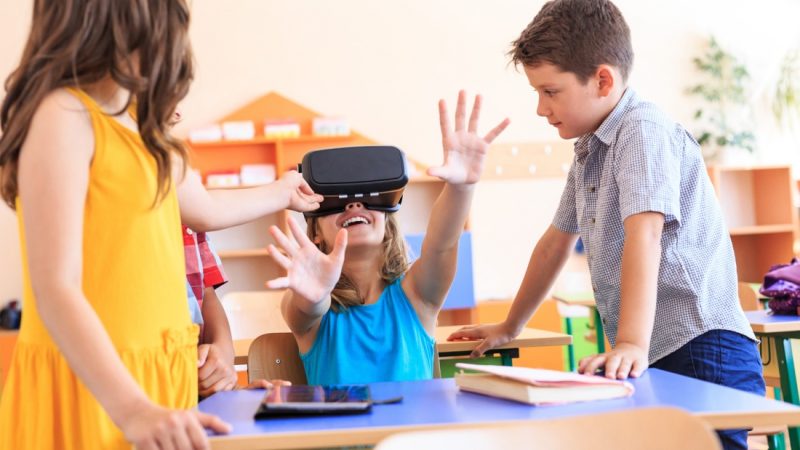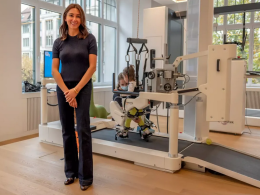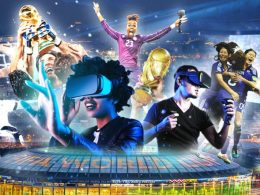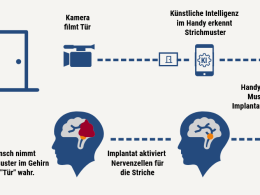The Institute of Religious Education at the University of Lucerne is launching the event "Teaching - Learning - Digitality", which aims to teach digital methods and approaches to religious education. Director of Studies David Wakefield spoke in an interview (shortened) on evangelisch.de about trends in the training of religious education teachers, as well as gamification and other digital concepts in religious education.
There are now specific learning events on this topic at more and more training centres, but in my view this is not enough. It would be important for digitalisation to become a cross-cutting topic in all courses as a matter of course - instead of being outsourced and cut off from other content. Basically, however, I do have the impression that awareness of the issue has increased at most institutions and that more attention is being paid to how digitalisation could succeed in teaching.
However, I have also noticed that more and more students and lecturers are using digital technology in their courses because it is part of their way of working. You don't have to explicitly thematise it, it just happens. I see that as perhaps the most effective change.
What trends do you see in the development of digital concepts for religious education?
I have the impression that the individual tools or programmes are no longer as central a focus as they used to be. It is no longer primarily about the question of how teaching processes can be digitalised, but about the influence digitality has on didactics and how it can be designed. It is currently moving in the direction of no longer seeing tools as an end in themselves, but rather emphasising their useful function.
Another exciting area is what I like to call the "expansion of possibilities". This doesn't involve digitising things that already existed before, but rather opening up completely new possibilities thanks to digital technologies.
What are the possibilities? Can you perhaps give a few examples to illustrate this?
On reli.ch is currently producing a number of specialist articles that deal with precisely this range of topics. Jens Palkowitsch-Kühl, for example, has analysed AR and escape games in the classroom. He shows the possibilities and how the digital can meaningfully enrich the analogue.
Something similar can be said about VR. Nowadays, it offers us the opportunity to explore places differently and get a different feel for them than if we were to look at a church interior only on a picture on a worksheet, for example.
Overall, you should ensure that the four Cs - communication, collaboration, creativity and critical thinking - are taken into account in everything.
Many of the technologies rely on playful elements, on gamification in the classroom? How do you feel about this?
My impression is that the gamification of teaching is less about the game and more about how playful forms can support the learning process. This is because learning theory has been recognised: People learn particularly well when they are motivated, when they can try things out for themselves, when they can network with others, when they can be active themselves and when they have the opportunity to take a self-directed approach.
It would be good if our methods were geared towards the world in which children and young people live. And since digital technologies have a firm place in the everyday lives of our pupils, they should naturally also be part of teaching and learning processes in the classroom. For teachers of religion as well as for everyone else.
And the areas of AR, VR and gamification in particular often offer freedom in which learners have the opportunity to decide for themselves when they want to learn and how they want to learn. This is very different from frontal teaching, where someone dictates what needs to be learnt when and how quickly. And I believe that this actually makes a significant difference. The effect is not primarily because it is digital, but because it suits the learners best.
In essence, we should always be concerned with the question: "What is the goal of learning? What are our goals? What skills are we working on?" And if digital technologies then offer the opportunity to do this with greater motivation and more enjoyment, I think that's all the better.
However, the choice of technical aids is not just about fun for the learners, but also for the teachers, right?
Wakefield: Of course! The question of whether something is enjoyable for the teacher is often underestimated. When making a selection, you should really also consider what you yourself are interested in. For me, technical skill is not the most important thing. You can learn that - if you want to.
Try it out more than once, see what is possible and then think about whether it really helps you in the classroom.
You can find the complete interview here.
Source: evangelisch.de









